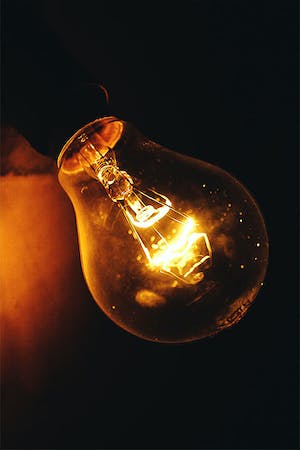What does an electrician do?
by Admin

What does an electrician do?
An electrician repairs and maintains wiring systems that power electrical appliances, equipment, fixtures, and other devices in homes, businesses, and other buildings. To ensure that they work optimally, electricians also test and repair damaged systems.
An electrician career can be rewarding, but also challenging, for those who are passionate about electricity. The National Electrical Code and safety protocols are required for this profession. There are many educational options available to become an electrician.
Wiremen
The electricians install and repair the electrical wiring in homes, offices, and other buildings. They maintain electrical equipment such as power monitoring systems and alarm systems.
To plan new wiring projects, these electricians often work with blueprints and technical documents. They may also be able to troubleshoot problems that might arise during installation and repair.
Because they are often required to install or repair wire on transmission towers or utility poles, they must be comfortable working at heights. This job requires physical stamina and extensive safety training.
Apprenticeships are the most common way that wiremen learn their trade. The programs last for four to five years, and typically require 144 hours of classroom instruction plus 2,000 hours on the job experience. After completing their apprenticeship, a wireman can become a journeyman and work independently. Alternately, they may choose to attend trade school for two year in order to become an associate or master electrician.
Installers of Lines
Line installers are responsible for laying the wires and cables necessary to supply electricity, landline telephone communication and cable television as well as Internet access. To meet customer needs, they install, maintain and repair telecommunications lines, including fiber optics.
The installation of electrical power lines requires extreme care and a thorough understanding of safety protocols. They install and maintain transmission lines that connect to the interstate grid, as well as local distribution lines that deliver lower voltage electricity directly into homes and businesses.
Employers require a high school diploma, or an equivalent. Some may offer apprenticeships or programs sponsored by the employer at local community colleges. Some programs work with local businesses to offer 1-year certificates which emphasize fieldwork. Advanced 2-year associate's degrees in telecommunications or electronics may also be offered.
Journeyman Electricians
What is an electrician?
Journeyman electricians are skilled in the installation and repair of electrical wiring, circuit breakers and switches, as well as outlets, in residential, commercial, and industrial buildings. They also troubleshoot and repair electrical systems.
As contractors or employees, journeyman electricians can work for a construction company. They might specialize in specific areas, such as power management or security systems.
After completing two years of additional work experience and passing the master's exam, a journeyman electrician could be promoted to master electrician.
A journeyman electrician who passes the Master's exam may be eligible for design work or even opening their own business. This allows for more responsibility, higher wages, and increased job opportunities.
Master Electricians
To advance their careers, master electricians have received additional education, training, and state certification. These individuals are generally more responsible than journeyman electricians, and can perform a wider range of electrical tasks.
Journeyman professionals are more likely to have supervisory and leadership responsibilities as well as knowledge of safety regulations and project management. They also supervise the work of their fellow journeymen.
Master electricians often earn more than their journeyman counterparts. Depending on their experience and location, master electricians can earn around $26 per hour.
Although it may be difficult to obtain your license, you will have greater responsibility in your career as an electrician. It is important to remember that master electrician requirements can vary from one state to the next. For more information, consult the licensing board in your region.
Master electricians are more responsible and often earn a higher income than their journeyman counterparts. To become a master electrician, it's well worth the effort and time.
Plumbing & Electrical Concepts
https://plumbingandelectricalconcepts.com/
electrical contractors flagstaff az
What does an electrician do? An electrician repairs and maintains wiring systems that power electrical appliances, equipment, fixtures, and other devices in homes, businesses, and other buildings. To ensure that they work optimally, electricians also test and repair damaged systems. An electrician career can be rewarding, but also challenging, for those who are passionate about…
Recent Posts
- Lawn Care Spring Branch Advocates for Property Care: Combatting Weed Growth and Preserving Curb Appeal
- Lawn Care Spring Branch Advocates for Property Care: Combatting Weed Growth and Preserving Curb Appeal
- Leveraging Technology for Accessible Real Estate Investing: A Deep Dive into Robinhood REI
- Designing Your Dream Home: Customization Options in Modern Manufactured Homes Across Arizona
- Expert Cleaners Lexington Shares Essential Tips for Properly Cleaning Hardwood Floors
